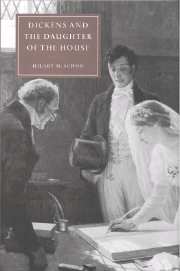Book contents
- Frontmatter
- Contents
- Acknowledgements
- Introduction
- PART I MAKING FICTIONS
- PART II ON NOT COMMITTING ADULTERY IN THE NOVEL
- 2 Dombey and Son: the daughter's nothing
- 3 Hard Times and A Tale of Two Cities: the social inheritance of adultery
- PART III THE DAUGHTER'S PORTION
- PART IV A VIOLENT CONCLUSION
- Notes
- Index
- CAMBRIDGE STUDIES IN NINETEENTH-CENTURY LITERATURE AND CULTURE
3 - Hard Times and A Tale of Two Cities: the social inheritance of adultery
Published online by Cambridge University Press: 22 September 2009
- Frontmatter
- Contents
- Acknowledgements
- Introduction
- PART I MAKING FICTIONS
- PART II ON NOT COMMITTING ADULTERY IN THE NOVEL
- 2 Dombey and Son: the daughter's nothing
- 3 Hard Times and A Tale of Two Cities: the social inheritance of adultery
- PART III THE DAUGHTER'S PORTION
- PART IV A VIOLENT CONCLUSION
- Notes
- Index
- CAMBRIDGE STUDIES IN NINETEENTH-CENTURY LITERATURE AND CULTURE
Summary
The early Dickens novel depends upon stories of identity: Oliver Twist, Nicholas Nickleby, and Martin Chuzzlewit all concentrate on the young hero's assumption of his patrimony and his personality – a process that comes to the fore in the autobiographical “favourite child,” David Copperfield. In that light, “a daughter after all” seems a mere distraction – the literary equivalent of the “base coin” Florence Dombey's father thought her. How much more ephemeral seems the plot of the daughter's adulterous mother, or the daughter's own progress through the meanderings of the adultery plot. And yet, as Dickens moved from these novels of identity toward the wider screen of the social novel, it was the adultery plot that served him in better stead – that allowed him to move from stories of identity to those of social position; to question the connections between individuals and the forces of historical transformation.
One example from David Copperfield might suggest why this is so. Midnovel, David meets Annie Strong, the young and beautiful wife of his teacher, Doctor Strong. While Doctor Strong adores Annie, calling her “the dear lady” and his “contract-bargain,” Annie is flighty and nervous, and seemingly infatuated with her cousin, the bounder Jack Maldon.
- Type
- Chapter
- Information
- Dickens and the Daughter of the House , pp. 70 - 98Publisher: Cambridge University PressPrint publication year: 2000



